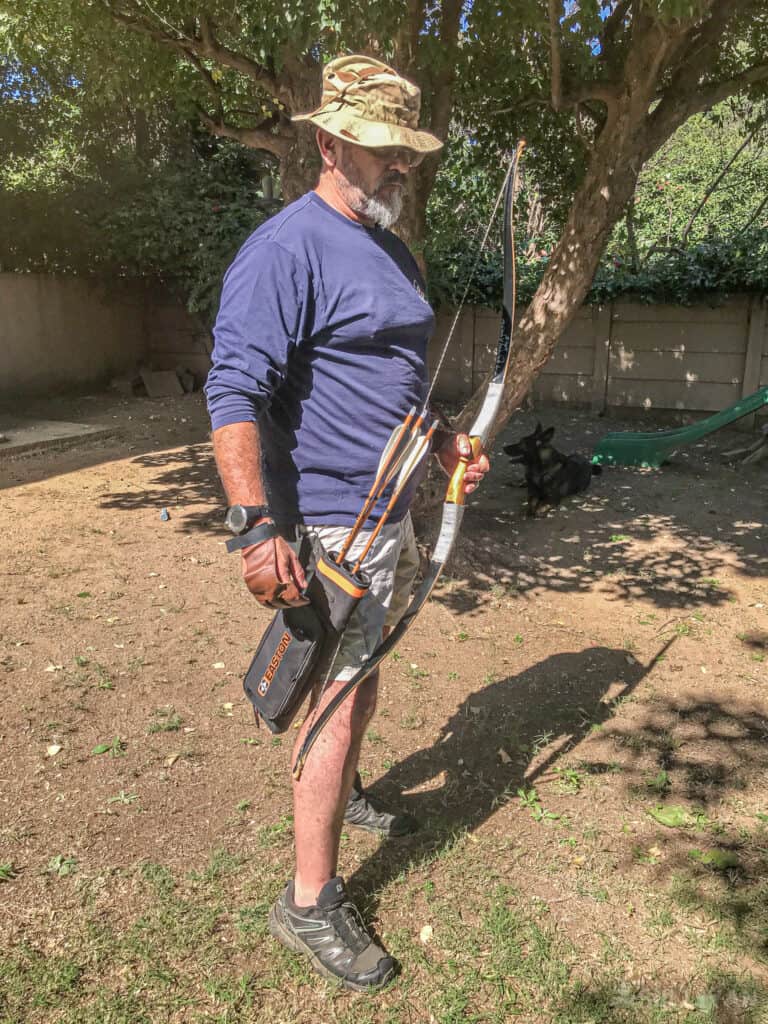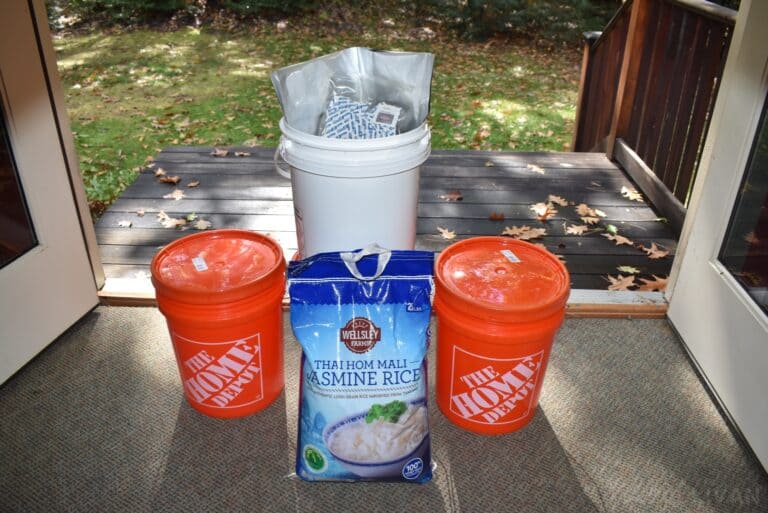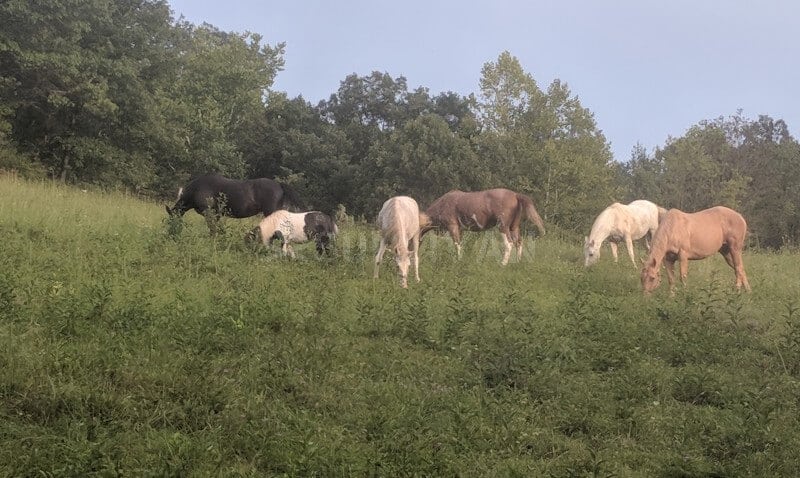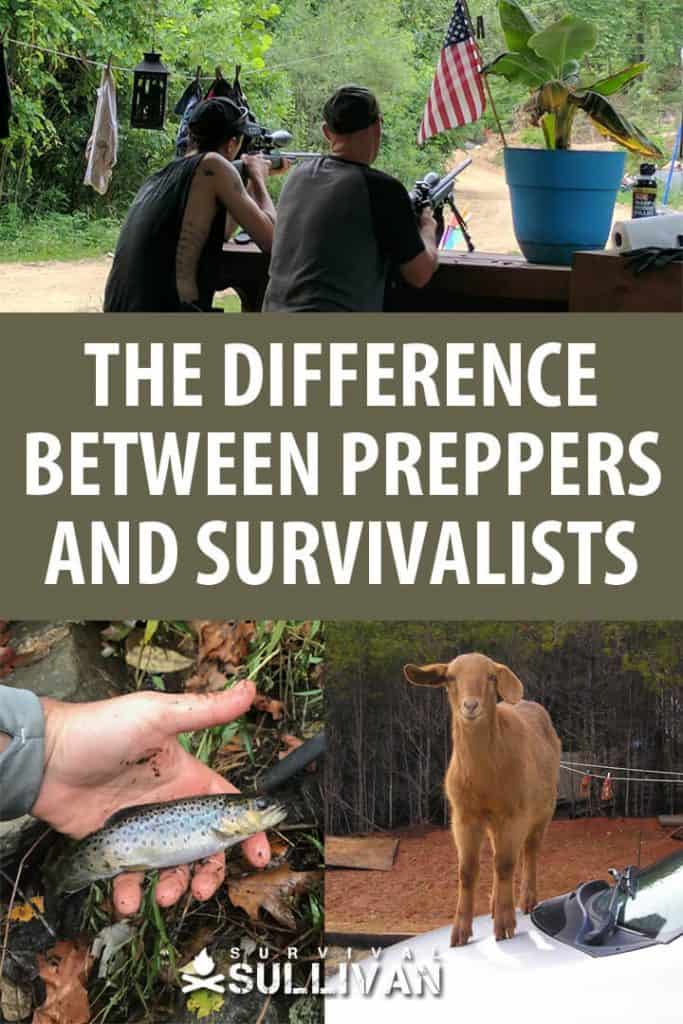Preppers and survivalists are not the same thing. Sure, folks involved in either type of self-reliant lifestyle have a whole lot in common, but one is based on stockpiling and the other a finely honed skill set.
Now, do not get me wrong, I know a plethora of preppers who also boast vital survival skills. But, unfortunately, many preppers focus on the stockpiling of items almost exclusively.
Newbie preppers, especially, have scores of really great survival gear packed away in boxes that they have not bothered to learn how to use.

When the SHTF, it is definitely not the time to open up a box and try to read a lengthy set of directions to learn how a piece of life-saving gear functions. Preppers and survivalists have the same ultimate goal – to be able live through a disaster, the approach to each discipline varies in some incredibly distinct ways.
Yes, there is definitely a crossover between the prepping and survival realms, but you truly need to hone skills in each to be able to keep breathing, not starve, drink clean water, and tend to medical emergencies during an apocalyptic event.
To better grasp the distinct differences and the quality similarities between the two different types of self-reliant individuals.
What Is A Survivalist?
A true survivalist stockpiles far more skills than supplies. If the gear or weapons cannot be carried on their back or in a rucksack, it is not a part of their SHTF plan.
Instead of stockpiling massive amounts of shelf-stable like preppers, survivalists plan to fish, snare, forage, and hunt for their meals. While rural preppers also grow up learning a lot of these same food acquisition skills that can be employed during a disaster, they are not relying on them either solely or as heavily as a survivalist.
During a mega disaster, there will no longer be hunting seasons. The wild game population will be overly taxed and the available meat from the forest will be reduced significantly – as will fish in the streams.
Not only will a survivalist have to deal with these potentially deadly scenarios, every hunt or fishing trip could make them vulnerable to attack.
Inside the home of a survivalist, you would not discover a large pantry lined with long-term food storage buckets, solar generators, a healthy stockpile of fuel, or heavy outdoor cooking supplies. A survivalist is a whole lot more of a minimalist than a prepper.
Lightweight and dual-use items are the primary survival tools for a person who belongs to this type of self-reliant mindset. A survivalist will have guns, make no doubt about that, but he or she will not be packing an arsenal of firearms on their back. Knives, lighters, firestarters, Life Straws, and similar lightweight gear will be in their bugout bag.
Yes, preppers also pack these types survival gear in their everyday carry bag or get-me-home bag, but the weapons and supplies are a means to an end during a journey to a far superior stockpile and not the only gear to be relied upon for potentially months…or longer.
Living somewhat comfortably is not a part of a survivalist’s disaster survival plan. Keeping breathing does not require more than a spartan existence for someone with a survivalist mindset and skill set.
Survivalism involves being able to acquire food, water, shelter, and heat on a base level, not stockpiling bartering items, morale boosters, or raising livestock to feed a family.
What Is A Prepper?
Preppers stockpile shelf-stable goods, homesteading and off grid style supplies, and often raise livestock to help them live (and thrive) during disasters both large and small.
Preppers develop skills to help themselves and their families survive a massive natural or man-made disaster and the societal collapse that will surely follow by either bugging in or bugging out to a retreat they have been creating to live in during a SHTF event.
Unlike survivalists, preppers are primarily focused on supply stockpiling because they know store shelves will empty within hours of a disaster, and relying on help to arrive from the government could quickly turn them into nothing more than part of the death toll tally.
In addition to stockpiling shelf-stable food, water, and water purification supplies, preppers also “horde’ massive amounts of either store-bought powdered milk or dehydrate their own – especially if they live in a rural area and raise their own goats or cows.
Like homesteaders, preppers spend a significant amount of time putting up food from their gardens and grocery store sales, as well as purchasing copious amounts of long-term food storage buckets.

Planning to defend the home – bug in location and/or getting to the bugout location and defending it from panicked hordes of marauders, is also a major facet of the prepper lifestyle.
Keeping a keen eye on current events is part of the prepping daily routine. A prepper does not want to be caught unaware and leave tardily for the bugout location or fail to rush home or to a rally point to be with loved ones as the S hits the H.
A prepper plans to remain in their chosen bugin or bugout location for the duration of the disaster. Only a loss of home through fire or an invasion that cannot be defended against would send a prepper out into the woods or to journey along the road.
Maintaining some level of comfort and both during and after the disaster. Stockpiling barter items to trade with other event survivors, and to use to acquire goods and services during the societal rebuilding stage is yet another integral aspect of living a preparedness lifestyle.
Prepping is most often a family affair. Children are taught how to shoot, grow, and raise their own food, and other essential self-reliance homesteading and off-grid skills from a very young age.
Preppers And Survivalist Similarities
Both survivalists and preppers are determined to withstand the dire straits they will find themselves in during and after an apocalyptic scenario – or even a short-term local disaster. Each man or woman living either type of self-reliant lifestyle is strong mentally, physically, and emotionally, and they’re all fiercely independent folks.
You would never find either a prepper or a survivalist willfully going to a FEMA camp or waiting around for someone to show up and say, “Hello, I am from the government and am here to help.”
Nope, survivalists and preppers will be either long gone or firmly sheltered in place with everything they need long before government assistance becomes a thing again.
Both survivalists and preppers know that driving cars could easily become a thing of the past after a TEOTWAWKI disaster. Self-reliant folks who count themselves among either the preparedness or survivalism communities often keep horses to use as a mode of transportation post-SHTF.

Not only will both survivalists and preppers be self-reliant enough to endure the first wave of a SHTF event, they will live both through and beyond the disaster. It will be these self-reliant folks who are still around to pick up the pieces of our fractured world and help rebuild it.
Both preppers and survivalists not only know how to use their guns but also how to repair and upgrade them, as well as how to reload their own ammo.
Geography can also cause a multitude of similarities between preppers and survivalists. If they live in a rural area (as all self-reliant folks should) a prepper will almost certainly possess more hunting, fishing, foraging, snaring, and trapping skills.
Learning how to walk quietly in the woods, how to build different types of fires, know which tree is good to chop down for firewood, cook over an open flame, and other common survival skills, is second nature to most rural preppers who grew up country and began learning how to do such things from about the time they got out of diapers.
A rural survivalist still won’t be stockpiler of goods and gear, but he or she will likely be able to bug in or not have not have to leave their own land or community to remain safe from the marauding hordes and source food, water, and heat.
The Differences Between Preppers and Survivalists
There are two supreme differences between survivalists and preppers – skills and stuff. Newbie and non-rural preppers who think stating they will flee and “live off the land” when the SHTF is their survival plan will rapidly become statistics. A survivalist will actually be able to pull it off.
When a survivalist goes off into the woods for a weekend of leisure disaster training, he or she primitive camps – possibly to a degree many outdoorsy folks would consider extreme.
Whereas at least many preppers, will enjoy the same getaway or undergo training from the comfort of an RV – or at least a manufactured tent.
Survivalists are often lone wolves, prepared to ride out the apocalypse by moving around their environment, and are skilled enough to live alone in the deep woods.
If you can get dropped off in the middle of nowhere and survive with only what is inside your everyday carry bag, then you are a survivalist. If your long-term survival requires making it to your bugin or bugout location, then you are a prepper.
Preppers plan to be stationary, only leaving their bugin or bugout location as a last resort. A survivalist only considers remaining in one place if the place they happen to live is remote with sustainable natural resources.
Which Is Better, Being A Survivalist Or A Prepper?
Neither. Both. It depends.
Both preppers and survivalists are capable of living through and past a SHTF event of any type.
Which specific lifestyle choice will get you there easier or closer to arriving in one piece will depend on a host of factors: skill set, stockpiled food and supplies, geographic location, secondary disasters (fire, illness, etc.) and available wild game…and perhaps even a bit of luck.
A blending of the two self-reliant lifestyles would be the best bet for your overall chance of survival. Over the decades self-reliant folks have been assigned many labels, from survivalist in the 1970s to preppers in more recent years.
Now, a new moniker seems to be emerging, and it applies appropriately to self-reliant individuals who are blending the best of the prepper, survivalist, and farming playbooks.
More and more often you hear or read the phrase, “survival homestead” when preparedness or survivalism is discussed. Self-reliant focused people who are engaged in this way of live have amassed or are growing their traditional survival skill set AND living on what many would dub a prepper retreat.
On the ‘retreat” traditional homesteading activities are going on, whether the self-reliant person owns ¼ of an acre of land or a parcel comprised of 50 acres.
The man or woman can hunt, fish, source wild edibles, find their way in the woods without disturbing the natural environment while picking up signs, scat, and tracks left by both humans and critters.
A survival homesteading family raises and grows a lot of their own produce, meat, milk, and natural medicines. They know how to preserve the food they grow and often tan the hides of their animals, stockpile firewood, and count typical home and vehicle repair skills among their attributes.
Inside such a home you would find stockpiled shelf-stable food. Unlike a stereotypical prepper, the bulk of the food in the pantry, garage, and/or basement would have been preserved by the self-reliant person who had helped grow and raise it and not have been shipped to them in a plastic bucket.
Preppers typically also stockpile large amounts of first aid and even major medical supplies. Survivalists carry essential medical supplies and may be more skilled in general first aid than a prepper, unless the prepper has some type of medical background or has wisely invested time in honing their skills.
A survival homesteader is a blending of both preppers and survivalists in this regard. He or she will most likely possess an admiral skill level allowing the tending to of both animals and humans, have a store-bought stockpile of medical provisions, but also grow medicinal herbs, plants, flowers, and herbs – and know how to use them.
Being able to source wild healing natural matter from the woods is also commonplace for this prepper – survivalist combo version of a self-reliant individual.
Would such a person be a survivalist or a prepper?
Hmm. Neither. Both. It depends.
What this kind of man or woman (and their family) would definitely not be, is a statistic in the disaster death toll.
No matter how you decide to label your survival and preparedness efforts, consider honing your self-reliance skills, learning how to use and repair all of your gear, and developing a solid SHTF plan with backup options so you and your loved ones are around to help keep America going after the smoke clears.


Tara Dodrill is a homesteading and survival journalist and author. She lives on a small ranch with her family in Appalachia. She has been both a host and frequent guest on preparedness radio shows. In addition to the publication of her first book, ‘Power Grid Down: How to Prepare, Survive, and Thrive after the Lights go Out’, Dodrill also travels to offer prepping tips and hands-on training and survival camps and expos.

What a great article! All the differences and similarities written about were well spoken. While I am sure there will be extremes on both sides, opinions on both sides, the comparisons are what we need to see and read. These types of articles always keep me reading. My wife and I consider ourselves more the self reliant type. Kind of between the two. Writings like this are meant to get or keep us thinking! Keep them coming!
Thanks and God Bless.
Couldn’t agree more, good article focused on discussion and information
Well said Bill. I agree with the article & you. Almost have the wife convienced to sell house, down size & build on acreage out away from BA & Tulsa.
Catch ya L8R
Indianola
Great article and very helpful to someone new to the survival mindset. My family has only been getting into survival for a little less than a year and we spend a lot of time learning as much as we can and trying out various gear and skills to see what works for us and what doesn’t. I always enjoy reads like this that help give us something new to think about or a new angle to try.
This article could be a fraction of it’s length. The author makes assertions upon her own assumptions in an undisciplined field of study. A revised article would be;
“These are two communal buzzwords used frequently without restraint and carry no depth or meaning when used by the interlocutor. Ultimately these terms do not have an established meaning and are open to wild interpretation”
In other words, you are clueless to both.
Prepping and survivalism is a synergistic combo. I am glad Tara has both the knowledge and discipline to do both as a survival homesteader. Her article is very encouraging and inspires me to work on both skills and planning/prep. Thanks!
Thank you Tara. This was a very informative and well written article. This has actually helped me to establish a clear vision for myself and my family and how to get to where I want to be.
Thanks again.